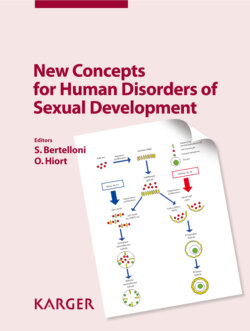Читать книгу New Concepts for Human Disorders of Sexual Development - Группа авторов - Страница 12
На сайте Литреса книга снята с продажи.
Eligibility of Cases in Registry
ОглавлениеAny adult or child with a DSD at a centre with an approved clinician is eligible to be included in the EuroDSD registry. Participating cases and their legal guardians (if patients are less than 16 years old) are approached by the clinical partner or a member of their team for approval to include the details on the registry. It should be emphasised that the registry only contains non-identifiable data and although there may be no need to obtain informed consent in some countries such as the UK to share such data with European Economic Area (EEA) members, which includes the 27 countries of the EU and the 3 countries of Norway, Iceland and Liechtenstein, it is recognised that some countries within the EEA, as well as out-with Europe, may have different national regulations which require opt-in consent models. For uniformity as well as for compliance with the feedback received from patient and user support groups, the opt-in system is the recommended standard of consent. As the registry includes children, an information sheet has been created for those under the age of 14 years. Over the age of 14 years, these young adults can be provided with the adult information sheet. Minors (under 16 years) may only participate if both, the minor and a parent or legal guardian, do not raise any objections. If the minor lacks the capacity to provide assent, parent or legal guardian permission is sufficient. On turning 16 years old, the registry will automatically remind the clinical partner to send the participant an adult information sheet. At any time, a participant may request that his or her data or their child’s data no longer be made available in the registry. Participants can make this request to their local clinician who is the clinical partner and who will inform the panel. The participant can also make this request directly to the panel. A confirmation of withdrawal shall be sent to the clinical partner.
The current European DSD registry has been approved by the local Caldicott Guardian in Glasgow, by the UK Research Ethics Committee and the Ethics Committee of the EuroDSD programme. The Congenital Adrenal Hyperplasia support group and the Androgen Insensitivity Support Group in the UK have also been consulted on the development of the registry. All information stored in the registry, and access to that information, conforms to the UK Data Protection Act (1998). However, all participating clinical partners and research partners are encouraged to follow their own national regulations and provide assurance to the registry panel that national regulations are being followed for data handling as well as research. Generic information sheets and consent forms have been developed and are available at https://tethys.nesc.gla.ac.uk/. The information sheets can be adapted to include the name of the local clinical partner, local institution and local institutional contact.
